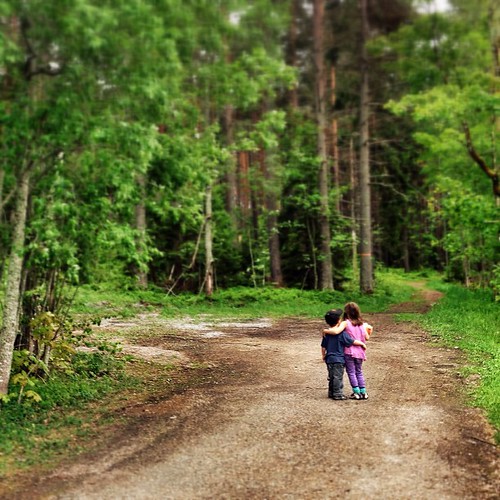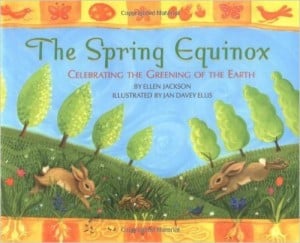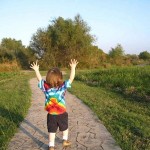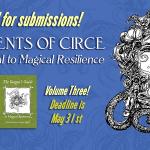Last week John Halstead wrote about his family vacation and his disappointment in his children’s reaction to natural beauty:
I find myself wondering what has changed between my childhood and now that I enjoy these drives. The contrast is all the more acute since I have children of my own. This past weekend, I hiked with my family up a mountainside to show them a beautiful meadow and a vista I had happened upon. My kids, now 11 and 14, enjoyed the view for all of 10 seconds before becoming distracted.
He proposed that a mature awareness of human mortality is a prerequisite to a full ability to appreciate nature.
How great of John to open up a conversation with this post that touches on some many salient questions:
- What and where is nature? (In the back yard, out a car window, on a mountaintop…)
- How should we appreciate it? (With our eyes, with our minds, with our hearts, with our bodies…)
- What can and should adults expect from children? (To plug in to their electronic devices, to stand in awe at natural beauty, to enjoy what the adults enjoy…)
- Do adults have romanticized expectations of children? (It’s wrong to expect children to appreciate nature, it’s wrong to overlook how children appreciate nature…)
- Are children’s spiritual lives fundamentally different from adults’? (They’re born with natural innocence and wonder, they learn appreciation of nature eventually, they should be more developed spiritually at 14 than at 4…)
- Can children communicate their experiences – mundane, magical, or mystical – in ways that parents can understand?
Alison Leigh Lilly responded to these issues at length on her own blog. She addresses the original post:
John entertains a healthy skepticism about writers who would hold up childhood as an idealized time of attunement with the natural world. But he goes too far, I think, when he calls into question the very ability of children to experience awe and beauty, as if children do not possess a rich and complex interior life all their own.
She also shares some of her own magical childhood memories of nature:
Home was where I could wander down the block to the park to spend an entire evening contentedly catching fireflies, or dawdle away an entire afternoon stalking field mice and grasshoppers or digging for crayfish in the creek, while the adults in my life ran errands or planned dinner parties or watched television and just generally treated the world like it was something to be used and consumed — either for work or for pleasure or for spiritual enlightenment — rather than a sacred place to experience, to dwell in just as it was.
When I shared the link to the original post on our Facebook page Sarah (not me!) replied: “Appreciating nature in terms of our fleeting existence is only one way to appreciate nature. There’s something special about a child experiencing nature who does not yet believe in death after life- nature is amazing for nature’s sake, not just for our appreciation of it.” Her comment reminds me of the value of multiple perspectives. There are a lot of great comments on John’s original post. I’d also like to open up this blog as a space to continue the dialogue. How do you answer the questions he’s raised?













